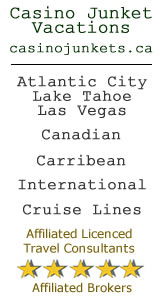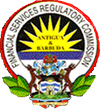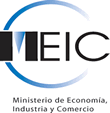Alderney licensees are by law permitted to take advantage of the modern hosting facilities and reliable telecommunication networks on both Alderney and Guernsey. For international network links, Alderney and Guernsey's telecommunication network offers reliable and high capacity links to the UK, Europe, the USA and Asia.
Licensed Online Casino Jurisdictions & Information

Legal poker sites are those that operate under license and regulation by an international gambling commission. Several nations allow onsite and offshore gambling operations to establish and operate online poker rooms or casinos according to the gambling laws of that nation. Regulations regarding fair play, use of random number generation software and responsible gambling restrictions for underage players are among the strictures of international gambling laws. When a country legally allows a poker room to set up operations under its gaming commission, licensing fees and documents establish the activity of a legal poker site.
Many of the legal poker sites operating internationally are based in the United Kingdom and are overseen by the UK Gambling Commission. Gibraltar, Antigua and Barbuda, Cyprus and the Kahnawake Mohawk Nation are among the other leading poker licensing and regulation governments in the world.
Additional Information on Top Legal Poker Websites
Even though these legal poker sites are publicly traded, licensed and regulated by their respective gambling authorities, not all sites are open to all players. National restrictions may apply based on agreements between licensing nations and the international governments of other nations that restrict player access to online poker rooms. Most poker rooms list country restrictions on their site, or the software will not download to a computer on a network in a blocked-access country. Error message windows pop up to say that Players from this country are not allowed access to this site.
The most apparent case of these legal restrictions occurred when the 2006 UIGEA law passed in the United States. All poker companies listed on the London Stock Exchange and publicly held in the UK closed access to U.S. players. This prevents such poker companies from financial or legislative consequences due to players who access online poker sites against the laws of their own country. Australian players may similarly be blocked from joining otherwise legal poker sites due to the Australian laws against its citizens accessing online poker rooms.
Legal online poker may be under debate, but the legal poker sites listed here are fully licensed and regulated according to the governing authorities where the sites are established. Party Poker offers legal, fair and responsible gaming to players 18 and over. All poker players should check their local laws before registering to play online poker.
Licensing Jurisdictions for Gambling Online Operations

Alderney
Alderney is a self-governing British Crown Dependency and is the third largest of the British Channel Islands. The island is entirely independent, belong to neither the UK nor the EU.
Antigua & Barbuda
This two-island Caribbean nation was one of the first jurisdictions to offer licenses for remote gambling operations, and have been doing so since 1994. The nation's history in the online gambling industry has been a rough one, riddled with battles against the US.
Antigua and Barbuda has a long standing reputation as one of online gambling's first licensing regulators. In 1994, before the Internet gambling craze encompassed the entire globe, Antigua became the world's first online gambling jurisdiction.
Costa Rica
Costa Rica, a small Spanish speaking country in Central America, is an extremely popular jurisdiction for companies to run their online gambling sites from. This is because the licensing procedures in Costa Rica work somewhat differently than in other places.
Costa Rica is considered one of the most popular gaming jurisdictions in the world. With over 300 gambling websites registered with the country, they're among the leaders and often considered the center of internet gambling. Although, with their many registered gaming sites, Costa Rica doesn't have legislation dealing specifically with online gambling. The Costa Rican government takes the stance that having outside countries registered for a license can bet and participate in gambling legally, but for Costa Rica citizens, it is illegal to gamble.
Netherlands Antilles
In 2002, internet gambling started playing a central role in Curacao's industry. The island decentralized online gambling from the Curacao Gaming Control Board, and they readily offer official licensing to all that pass the application process. The Governor of the Netherlands Antilles holds the power to award internet gambling licenses.
CIGA, a popular symbol on hundreds of online casinos, stands for the Curacao Internet Gaming Association. Under this banner, all operators must provide a forum for interested parties to address issues, advance common interests of members, and respect the global interactive gaming community and industry. All parties must also establish responsible and fair practices and guidelines that will enhance consumer confidence in all gaming products and services based in Curacao.
Gibraltar
Gibraltar is a small self-governing British territory located on the southern-most tip of Europe. The territory has been dealing with offshore and remote gambling since the late 1980s, and issued its first online gambling license in 1998.
Under the aforementioned provisions, the Gibraltar Regulatory Authority is the territory's Gambling Commission. It is up to the Commissioner to make certain that all those licensed within the jurisdiction conduct operations in accordance with their licenses.
Kahnawake
Located in north-eastern Canada just outside of Montreal, the Kahnawake Mohawk Territory, or simply Kahnawake, is a self-governing entity, sometimes referred to as a "First Nations (Indian) Reserve". The Kahnawake Gaming Commission has been licensing online gambling sites since 1999.
Based in Quebec, Canada, the Kahnawake Gaming Commission is a regulatory authority overseeing online gaming. Their commission gives licenses to qualified parties seeking to establish online casinos and poker rooms.
Kahnawake carries authority due to their sovereign status; however, even though the commission retains native rights of the Mohawk Nation, they're still in agreement with the country to operate within the Canadian Criminal Code, which states only the provincial government can issue gaming licenses.
The Gaming Commission has a license to control gaming and all gaming-related activities conducted within their jurisdiction. Unlike other countries issuing gaming licenses, Kahnawake carefully monitors and regulates all activity from all sites.
Malta
The Republic of Malta is an island nation in the Mediterranian Sea. A former colony of the United Kingdom, Malta became part of the European Union in 2004. Malta's Public Lotto Ordinance has been issuing online gambling licenses since 2000.
In 2003, the Malta Lotteries and Gaming Authority made an announcement that they were putting together a new licensing regime dealing specifically with online gaming, such as online casinos, sports books and poker rooms. These measures were widely accepted and were subsequently rushed through, with a date set to launch operations in February of 2004.
Only missing their target by two months, the new Remote Gambling Regulations were published in April of 2004, and contained many new regulations besides those regarding online betting. The new regulations provided a multitude of tax exemptions and licensing opportunity for interested off-shore parties.
United Kingdom
Internet gaming operators may run most types of remote gambling services out of the United Kingdom. Online gambling is regulated by the UK Gambling Commission, pursuant to the Gambling Act of 2005, but it was not until 2007 that they started issuing licenses for online gambling activities.
The Gambling Commission of the UK is six years into a new approach that allows for online gambling. The UK's gambling laws received a complete overhaul courtesy of the European Union directives and market pressure from the inside. Politics also played a dominant role in the decision.
With the United States' gambling laws, there was a huge political response. The EU didn't wish to share the same fate. Until the new bill came through, the entire UK was completely outdated in terms of school of thought regarding gambling in the modern world.
When the new legislation was revealed to cover remote gambling, the craze was instantly created. Since the internet is one of the world's largest markets, accessible by anyone with a connection, the EU saw massive opportunity.
Isle of Man
The Isle of Man is a very reputable gambling jurisdiction that offers licensing to corporations abroad. The island's government, unlike many around the world, actually encourages the development of online gaming business on the island.
The powers that be remain completely committed to being a strong regulatory force in the world of e-gaming. The Isle of Man accepts applications for licensing, implements a thorough vetting process, and grants a license only if all standards are met.
From the time internet gaming exploded, the Isle of Man has been right in the middle of the action. Wishing to seize the opportunity and create more economic prospects, the Isle of Man became one of the first jurisdictions to introduce gaming legislation that was specifically formulated to help benefit gambling and various online firms.
Panama
In October of 2002, Panama began offering internet gaming licenses to interested parties wishing to operate within their jurisdiction. Every internet gaming company registered within or hosted inside of Panama must be registered under the Online Gaming Act of 2002.
This regulation allows for international wagering to take place online. The official currency of all entities operation within the jurisdiction of Panama is the USD, and no online gaming companies are subject to foreign exchange control.
The jurisdiction of Panama offers a standard US infrastructure and all the necessary resources at nearly half the cost. Being so close to the US, Panama has ready access to multiple broadband networks.
 Free Roll Poker Directory
Free Roll Poker Directory 












